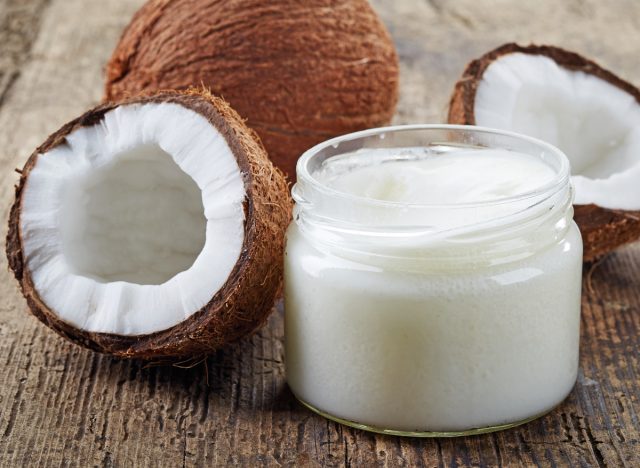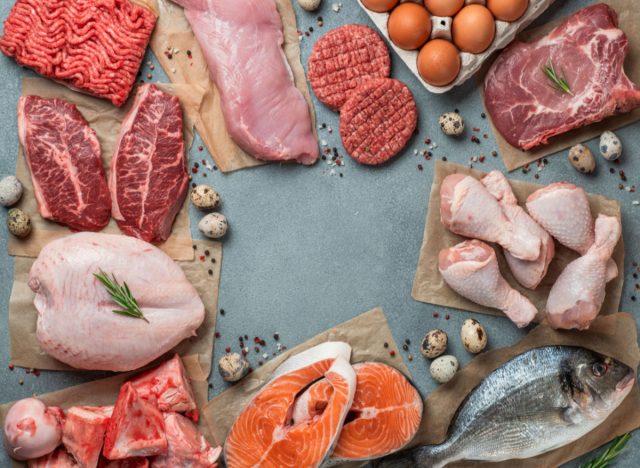The Worst Wellness Myths To Stop Believing Right Now, Says Expert

While scrolling through your Facebook, Instagram, or TikTok feed, you've likely encountered some sort of health-related content that promised results. Maybe it was a specific diet or workout program guaranteeing weight loss in a short amount of time. Perhaps it was a skin serum claiming to reverse the effects of aging. Whatever it was, the product or service was likely positioned as something that will, without a doubt, work. From the rise of fitness influencers to the proliferation of self-proclaimed wellness "gurus," social media has opened Pandora's box when it comes to health information. While it's fair to say that some of the content out there can be helpful, a lot of it is unsubstantiated, unreliable, and sometimes straight-up dangerous, which is where these wellness myths come into play.
To better understand what to look out for on social media, we spoke with Erin Sharoni, certified personal trainer, Master of Bioethics degree candidate at Harvard Medical School, and Chief Product Officer of longevity technology startup FOXO Technologies. Read on to see what she has to say about some of the most prevalent wellness myths circulating the internet. And next up, don't miss The 6 Best Exercises for Strong and Toned Arms in 2022, Trainer Says.
Myth #1: Carbs are the enemy.

The demonization of carbs is one of the most pervasive wellness myths you'll find in diet culture—and something Sharoni says couldn't be further from the truth. "Longevity research shows that getting the majority of your calories from carbohydrates is associated with reduced mortality and a longer lifespan," she points out. However, it's important to note that this statement only applies to certain carbohydrates. "We aren't talking about carbs from processed [or] refined foods—sugar, corn syrup, etc. definitely should be avoided," Sharoni says. "But complex carbohydrate sources are rich in critical fiber—[which is] essential for gut microbiome health among other benefits—and contain many other essential nutrients."
Some examples of complex carbohydrates include whole grains, fruits, vegetables, and legumes.
Related: 3 Common Strength Training Myths, Debunked by a Certified Trainer.
Myth #2: Lectins should be avoided.

Lectins, which are carbohydrate-binding proteins, have garnered immense attention in recent years, thanks to popular diet books, supplements, and highly publicized celebrity weight loss diets. All plants contain these proteins, but raw legumes and whole grains are the richest sources of them.
While lectins have received a bad rap for causing gastrointestinal distress and other negative side effects, according to Harvard Health, eating foods with high amounts of them is uncommon. This is because the proteins are strongest in their raw state, and lectin-containing foods are typically eaten cooked. Sharoni adds that people may experience stomach discomfort when consuming lectins like beans because they aren't used to the high fiber content. "…If you avoid a whole food group, your microbiome population changes, and you aren't able to digest those less-consumed foods as easily," she says.
To effectively incorporate lectins into your diet, Sharoni recommends eating a variety of lectin-containing foods slowly over time, such as one teaspoon per day until you can comfortably tolerate them.
Myth #3: You should go crazy for coconut oil.

From encouraging fat burning and boosting energy to curbing hunger and reducing stress, coconut oil has been said to have a range of health benefits, causing it to gain significant popularity in the wellness category. Despite its trendiness, it's crucial not to overdo it, since coconut oil is high in saturated fat—a type of fat that has been linked to an increased risk of cardiovascular disease and stroke.
"It's not that you should cut it out entirely, but you should consume it in moderation, and it's a popular myth these days that it is healthy to just add it freely to foods and even beverages like coffee," Sharoni says.
Myth #4: The carnivore diet is healthy.

The carnivore diet is precisely what it sounds like: only eating animal products and meat. While it's been peddled as a way to lose weight, regulate blood sugar, and boost your mood, there are several dangers to this diet. Since it consists of solely eating animal products, the carnivore diet can be heavy in sodium, cholesterol, and saturated fat. This, in conjunction with its highly restrictive nature, can lead to high cholesterol and blood pressure, as well as an increased risk of heart disease, cancer, and other health conditions.
"This diet is also low in fiber and other nutrients required for optimal health. What's the type of diet that we know for sure is linked to better health and longevity? A plant-centric diet. There's really not much debate about this in scientific circles," Sharoni says.
Myth #5: "Quick fixes" really work.

Whether it's a wedding, a holiday party, or a vacation, it's normal to want to look your best for a special occasion. However, "get rich quick schemes" that promise immediate results—like crash diets— aren't sustainable, and they often aren't even healthy, Sharoni says.
"There's nothing wrong with being motivated and having a timeline," she adds. "But the most lasting and most effective dietary and fitness changes happen because you're making them holistically and you're integrating them into your lifestyle, and generally, they take a longer period of time."
Myth #6: You can target trouble spots through exercise.

The last of these wellness myths has to do with spot reduction. Spot reduction refers to the concept that you can decrease the amount of fat in certain body parts by doing specific exercises. Although this idea may sound enticing, it's not supported by science.
When you're doing certain exercises, the body doesn't solely use energy from the cells in the section you're focusing on. In other words, while doing a lot of ab exercises will strengthen your stomach muscles, unless you lose overall body weight, you won't notice a difference in fat loss.
"Short of surgery, there's nothing you can do that's only going to target those areas. Some of it's genetics. Most of it is diet. A lot of it's how you live your life and move your body," Sharoni says. "So, you're generally looking for a whole body change or benefit over time rather than focusing on that one area."








